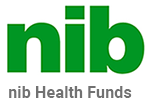
You've definitely heard that "you are what you eat," and this is especially true when it comes to your teeth and gums. The bacteria in your mouth that can cause tooth decay and gum disease absolutely loves the starchy or sweet foods that we enjoy.
Diet has a lot to do with the difference between a healthy smile and frequent dental visits. Even with a strong oral hygiene program (brushing twice a day, flossing once a day), keeping your teeth healthy in the long run might be difficult. Healthy teeth and gums are promoted by eating a range of nutrient-rich foods from all dietary categories. For a healthy smile and body, this involves eating a balanced diet of fruits, vegetables, protein meals, calcium-rich foods, and whole grains.
Diet and Oral Care - Two Sides of a Coin
Your diet — what you eat and how often you eat — are crucial factors in preventing cavities and maintaining good dental health. Changes begin the moment you consume specific meals. Sugars and carbohydrates from the foods you eat are converted to acids by bacteria in your mouth, and the acids destroy the enamel on your teeth, commencing the decay process. Too much sugar (such as cake, cookies, and candy) and savory meals and carbs (such as pretzels and potato chips) can promote dental rot.
The more you eat and snack, the more likely you are to expose your teeth to the decay cycle. Saliva can sweep away food particles that germs would otherwise feast on if you wait too long between meals. Snacking on a regular basis without brushing afterward provides microorganisms with steady nourishment. Try to keep snacks to a minimum, no more than one or two each day. If at all possible, brush your teeth after each time you eat.
The Best and The Worst Food for your Teeth
If you are what you eat, your teeth and gums are no exception. You're not just nourishing yourself when you drink and eat starchy or sugary meals. You're also feeding the bacteria in your mouth that can cause tooth decay and gum disease. Plaque is a thin, sticky coating of bacteria and other things that are undetectable to the naked eye. It protects all the surfaces of your teeth.
Acids occur when sugars or carbohydrates in your mouth come into contact with plaque. These acids can eat away at your teeth for up to 20 minutes after you've finished eating. The strong enamel on the surface of teeth can be eroded by repeated strikes. Tooth decay happens as a result of this. Plaque bacteria also causes an inflammatory reaction. The gums, bones, and other supporting elements of your teeth deteriorate as a result of this.
Some foods are known to promote tooth decay. Other foods can aid in the prevention of plaque formation. Here are some meals to look for and others to avoid.
Healthier Food for Teeth
High Fibre Fruits and Vegetables
According to the American Dental Association, fiber-rich foods help keep your teeth and gums clean (ADA). They also cause saliva to flow. This is your strongest natural defence against cavities and gum disease, aside from good home dental care. Your saliva begins to lessen the impact of the acids and enzymes assaulting your teeth about 20 minutes after you consume something with sugars or starches. Calcium and phosphate traces can be found in saliva. As a result, it restores minerals to parts of the teeth that have been stripped away by bacterial acids.
Dairy items (including cheese, milk, simple yogurt, and other dairy products)
Another saliva-inducing food is cheese. Milk, cheese, and other dairy items provide calcium and phosphates, which assist your teeth to reclaim nutrients that have been lost owing to other foods. They also aid in the restoration of tooth enamel.
Green or Black Tea
Polyphenols in both of these teas interact with plaque microorganisms. These compounds either kill or prevent bacteria from multiplying. This stops bacteria from multiplying or producing acid that harms teeth. A cup of tea can be a source of fluoride depending on the type of water you use to prepare it.
Chewing gum with no sugar
Another excellent saliva producer that eliminates food particles from your mouth.
Fluoride-containing foods
Fluoridated water, or any product made with fluoridated water, is beneficial to your teeth. Powdered juices (as long as they don't include a lot of sugar) and dehydrated soups are examples of this. Fluoride can also be found in commercially prepared foods such as poultry, shellfish, and powdered cereals.
Problematic Food for Teeth
Sticky Sweets and Candies
If you must consume sweets, choose those that dissolve rapidly in your mouth. Refined sugar-containing lollipops, caramels, and cough drops get a thumbs down. The benefits of chocolate in avoiding cavities have long been touted (largely by studies funded by the candy industry). This hasn't been confirmed conclusively. However, Chocolate washes off the teeth faster than other candy. There are some health benefits to dark chocolate (70 percent cacao). According to some studies, chocolate isn't as terrible as other sweet foods.
High Starch Food Items
Foods with a high starch content can become lodged in your teeth. For example, soft bread and potato chips can get stuck between your teeth.
Carbonated Soft drinks
These drinks are the most common source of added sugar among children and teenagers. They are high in sugar. Furthermore, most soft drinks include phosphoric and citric acids, which erode tooth enamel.
Substances that cause your mouth to get dry
Among these include alcohol and a variety of medications. If medications are the source of your problem, talk to your dentist about receiving a fluoride rinse or a fluoride gel to brush your teeth with.
Is Chewing gum good for your Teeth?
Chewing sugarless gum is good for your teeth because it helps remove food lodged between your teeth and promotes saliva flow, which buffers (neutralises) oral acids. Some gums contain chemicals that can help prevent cavities and repair places on the teeth where they are starting to form. If you have jaw pain or other issues with your jaw, chewing gum can be a concern.
Teeth and Gum care Tips
Here are some basic tooth and gum care suggestions:
1. Brush your teeth on a regular basis. Brush your teeth at least twice a day, ideally 30-60 minutes after each meal and snack. If brushing between meals isn't an option, at the very least, rinse your mouth with water many times.
2. Use a toothpaste that contains fluoride. To reverse early decay, fluoride permeates into the tooth.
3. To help eliminate particles between teeth and below the gum line, floss at least once a day.
4. Use a mouth rinse on a daily basis.
5. Check-ups and cleanings with your dentist are recommended twice a year. Regular dental examinations will also aid in the early detection of any growing dental disorders.
6. To upkeep your general health, eat a variety of meals. Between meals, consume fewer sugary and starchy items. If you have to snack, go for healthy options like cheese, raw veggies, plain yoghurt, or a hard fruit (such as an apple).
Conclusion
When it comes to your dental health, you are truly what you eat. Tooth decay is intensified by sugary meals such as sweets and carbonated beverages. When you eat a bad diet, your oral health is one of the first things to suffer. On top of that, Oral health problems can be avoided by brushing teeth twice a day with fluoridated toothpaste, flossing once a day, drinking fluoridated water, and obtaining regular oral health treatment, in addition to maintaining a healthy diet.
Go Back

















